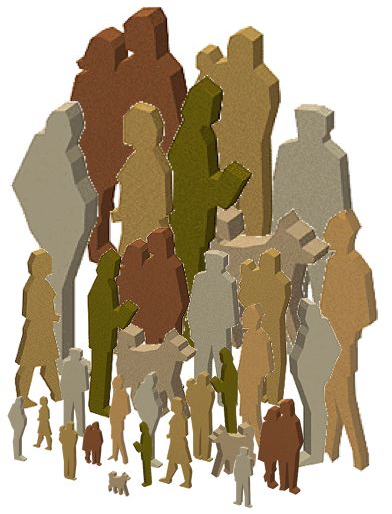 |
Nanotechnology and Society An undergraduate course on nanotechnology and its societal implications. |
Science and Technology Studies 201, Section 84405, Spring 2005, University of Wisconsin-Madison. |
This 3-credit course was designed and taught by Charles Tahan in the spring semester of 2005, the first year it was offered at the University of Wisconsin-Madison. It was co-develeped with members of the Wisconsin Nanotechnology and Society Initiative. |
Essay Assignments 1, 2, 3, 4Four formal essays will be assigned throughout the semester to explore the main topics covered in class and in the readings. The goal is to ponder questions the international community is struggling with currently. Download PDF of the essay assignments. Essay #1STS 201, 84405: Nanotechnology and Society, Tahan Due: Monday, January 31 You are interviewing for a job at McKinsey, a prestigious consulting firm that hires only the best. During your interview you mention that you have some experience thinking about the societal implications of technology, specifically nanotechnology. Seeing a possible avenue for future growth, your interviewer asks you to go home and write a two to three-page executive summary (double spaced) defining nanotechnology (which she, a non-scientist, can understand) and postulating on specific areas where McKinsey may be able to do nano-consulting in the future. You must really impress her to get the job. Include references and pay attention to writing style and clarity. She will almost certainly ask someone in the company who knows nanotechnology to review your work, so be sure of your facts. Consider why nanotechnology may be a good area for McKinsey to build some expertise in. Essay #2STS 201, 84405: Nanotechnology and Society, Tahan Due: Monday, March 7 Does nanotechnology have politics? Make your case, for or against, using the articles by Langdon Winner (Forms of Life, Artifacts), Leo Marx, Kline and Pinch, and Cousins and Woodhouse, as well as the science related resources we’ve used in class (Understanding Nano, government reports, etc.). Touch on as many viewpoints as you can while making the essay readable. 2 double spaced pages. Essay #3STS 201, 84405: Nanotechnology and Society, Tahan Due: Fri., April 22 Is the field of nanotechnology a revolution or just evolution? Make your case, for or against, using the articles we discussed in class as well as any others you might find. If nanotech is a revolution, what kind of revolution is it? Industrial? Or something else? Try to compare nanotechnology to some historical revolution. Also address the question of how the military may encourage or impede such progress and if it is with nanotech. Answer these questions from a USA perspective. How is nanotechnology different from other advancements in the US in the past? (2.5 – 3 double spaced pages) Essay #4STS 201, 84405: Nanotechnology and Society, Tahan Due: Wed., May 4 Testimony before the congressional subcommittee on the first review of the National Nanotechnology Initiative Goals:
Your assignment is to write a brief testimony to congress (approximately 2 pages, 3-5 minutes spoken) where you address the following points attempting to persuade congress to legislate in your favor.
You will represent one of the following groups (I’ll assign you one in class):
Be true to the group you represent (and the real reports and readings we’ve read) and not to your personal opinions. But feel free to add your own ideas. Try and use what we’ve gone over in class to support your points. In class on wed. you will meet as groups and share your points with the rest of the class as a review before turning in your paper. |
|